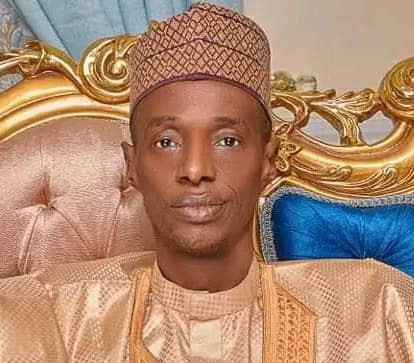Amid rising debates over Nigeria’s security challenges, Abdulrahaman Kwacham, a prominent All Progressives Congress (APC) stakeholder from Adamawa State, has responded strongly to former Kaduna State Governor Nasir El-Rufai’s recent remarks on national security.
Kwacham’s reaction follows El-Rufai’s comments on Channels Television’s Sunday Politics, where the former governor alleged that the Federal Government, through the Office of the National Security Adviser (ONSA) led by Nuhu Ribadu, was engaging in a policy of offering allowances and food supplies to bandits instead of directly confronting them militarily.
He described this as a national strategy that incentivizes criminal groups rather than stopping them, arguing that insecurity in the North remains rampant despite official claims of progress.
Kwacham, a grassroots politician and long-time APC member who has previously contested for senatorial and gubernatorial positions in Adamawa, dismissed El-Rufai’s allegations as baseless and politically motivated.
He also questioned El-Rufai’s criticisms of the current administration, noting that the former governor himself faced challenges during his ministerial nomination.
Kwacham further argued that El-Rufai should reflect on his own tenure as Kaduna State governor, during which insecurity persisted, especially in Southern Kaduna and other northern states.
He said: “One thing I know is that Ribadu is too big to respond to such comments. Nigerians know who is genuinely working for the country’s security and stability. We are ready to counter any misleading claims with facts and figures.”
Kwacham maintained that the Tinubu administration is working in the interest of the Nigerian masses and pledged continued support for the president’s agenda, including his potential 2027 re-election bid.
The Office of the National Security Adviser has also rebutted El-Rufai’s claims, describing them as “baseless, false, and deeply insulting” to security forces, who, it said, have neutralized several bandit leaders in Kaduna and beyond through kinetic operations and community engagements.
El-Rufai, however, has stood by his position, accusing ONSA of mismanaging security in the North. His remarks have sparked fresh debate within the APC, with some groups, including the Centre for Convention on Democratic Integrity, dismissing the allegations as politically motivated.
As the 2027 elections approach, political observers warn that such exchanges risk deepening divisions within the ruling party and could complicate its security narrative ahead of the polls.
By Tom Garba


